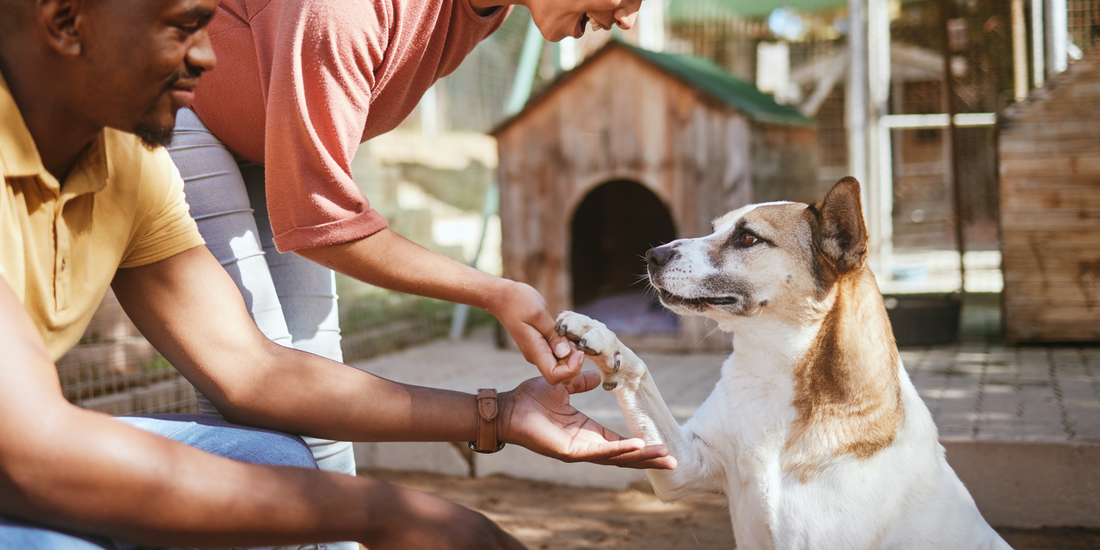So you adopted a pup! You just changed your new dog's life for the better and he or she will do the same for you. But with all the excitement, you may not be thinking about what comes next, after you bring your newly adopted pup home. Here are some things to think about:
Familiarize Yourself With Their Personal History
Rescue dogs almost always come with some sort of baggage, depending on what they've been through. And every dog is a unique individual with their own personality. This means that as their new parent, you'll want to be aware of as many of their triggers, fears and anxieties as possible. In addition, you'll also want to prepare yourself for any they didn't exhibit at the shelter. Your adopted dog may always have certain triggers and anxieties but remember that love will help heal your dog's emotional wounds.
Pro Tip: Try to get as much information from the shelter about your newly adopted dog because any insight into their past can help you create the best environment for them. In addition, talk to your vet and trainer to get advice and tips.
Give Them A Space Of Their Own
Giving your new pup their own, dog-friendly area in your home will help them with their transition into family life. Of course you want to make sure your house is safe for your dog, but it's also a good idea to give them their own space. A crate with a dog bed, blanket or toys will welcome them and give them that personal place. Also helpful for your new pup is a consistent spot for their food and water bowls (and puppy pads for adopted puppies).
Pro Tip: You may want to move around some potential hazards (anything they can hurt themselves on or chew like cables or glass) when your pup first comes home until they get used to their new home.
Create A Routine
Puppies and dogs like routine and quickly adapt to a schedule. Their routine will include things like sleeping, eating, going out to the bathroom, etc. To help your new dog adapt to home life, try to create a relatively steady routine. If you adopt a young puppy, you'll also need to create a plan and routine for potty training.
Pro Tip: Training is a great way to help your dog adapt to his or her new home and can also be incorporated into a routine. You can teach them where their place is using their dog crate or bed, to listen to commands like "come here" or "sit," and even some fun tricks.
Consult Your Vet
Your vet is a great resource to take advantage of when you adopt a dog and don't know much about them. They can try to give some insight about your dog, including their potential breed, as well as their expected or ideal size and weight. In addition, they'll be able to guide you on a proper diet and other tips, tricks and advice to help make the transition to home life a smooth one.
Help Your Dog Make Friends
Once your pup has been cleared by your vet (after necessary vaccines, etc.), he or she will be able to interact with other dogs and humans. This can help your dog adapt to his or her new life. Just make sure they are good with other dogs and have had proper socialization before taking them to make friends. As mentioned before, knowing your dogs triggers is important, so if your dog is anxious around or fearful of other people or dogs, you'll want to avoid stressful situations.
Overall...
Your newly adopted dog's personality will slowly come out and eventually shine as he or she becomes more comfortable with you and the new home. Observe your pup from the beginning (and continue to do so through the years), so you can become familiar with his or her tendencies, behaviors and body language. It takes time, patience and consistency for your pup to become comfortable, but once you both get there, your relationship will be beyond rewarding and incredible.

